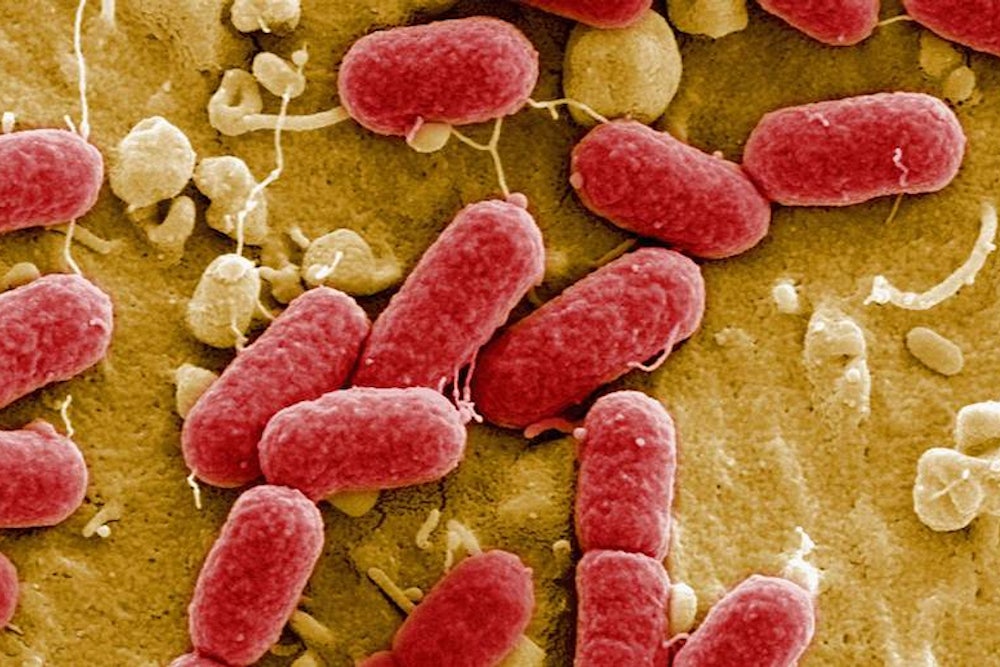Here’s something to think about while you eat and drink to excess on New Year's Eve: your large intestine is host to roughly a hundred trillion bacteria, weighing a few kilos, and they can have a surprising effect on your health and maybe even your behaviour.
In December, researchers at the California Institute of Technology showed that mice demonstrating abnormal social interactions, obsessive behaviour and intestinal problems—all traits associated with autism in human beings—can be cured if they ingest the right type of bacteria.
That’s quite a startling result, and just the latest in a booming area of research. Typically, you will have hundreds of different species of microbes living in your gut; this is known as your gut microbiome. A study reported this spring showed that not hosting a sufficiently diverse bacteria population can lead to insulin resistance, which is often a precursor for Type 2 diabetes and can make you prone to putting on weight. This is fixable, according to another recent study: if you go on a low-calorie diet, it boosts your gut microbe diversity.
Or you could have a microbe transplant. Lean mice have been made obese simply by giving them the gut flora of obese mice. And, in a remarkable study published in September, gut flora taken from human twins where one is obese and one is lean affected the corpulence of the mice that received them. Those that received the microbiome of the fat twin became fat, and the ones that got the lean twin’s bacteria became lean. Body shape is, to a certain degree, transmissible.
Microbiology is becoming cheaper, and the processing of biological information is happening ever faster. Today, there are even crowdsourced, open-access studies, such as the American Gut project. In September, its scientists released the first analysis of the gut microbiome of North America, based on 1,000 stool samples. This is just the start: 4,000 people are now signed up to the project (you can sign up from anywhere in the world but researchers are having problems with US Customs over importing fecal matter). American Gut is co-ordinating its findings with information from large-scale genomic and body-mapping projects; we are beginning to build the kinds of database that could revolutionise medicine.
We don’t yet know enough to prescribe bacteria as medicine. The partial state of our knowledge is clear when it comes to autism—and yet there is promise. In 2012 a different team created mice with autism-like symptoms by injecting pregnant females with a virus-mimic that stimulated the immune system; their offspring were significantly more anxious and less sociable than normal. These behaviours were occurring in mice with low levels of one bacterium. When the researchers compensated for the deficiency, the behaviour returned to normal.
Chemical signals between the gut and the brain play a role, too. Analysis of the blood of mice with autism-like symptoms showed elevated levels of a chemical known as 4EPS, which has a structure similar to that of a molecule found in higher-than-normal levels in the blood of autistic humans. Inject normal mice with 4EPS, which is made by gut bacteria, and you can induce autistic-like behaviours.
Autism covers a spectrum of symptoms and we won’t find that one chemical or bacterial change will be a cure-all. It’s enough, though, to spur further investigations. Is mulled wine so toxic, for instance, that it kills the bacteria that would otherwise keep you slim over the holidays?
This piece first appeared on newstatesman.com.
